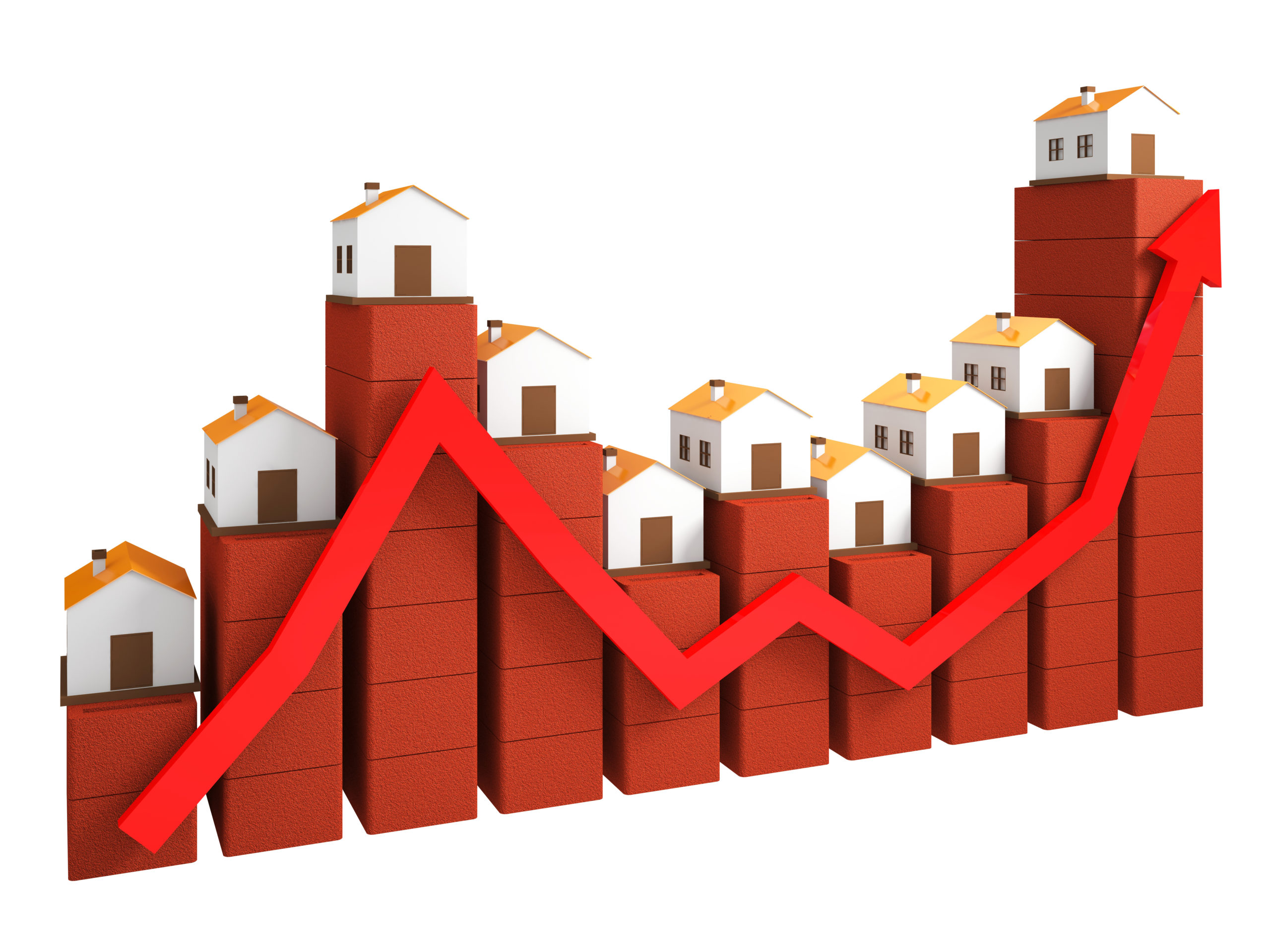If you have stayed updated on recent events in the news in the past year, at some point you’ve likely heard the scary word “recession.” The idea of a recession might seem overwhelming or concerning, but the US should know a thing or two about bouncing back from economic turmoil. Due to the coronavirus, the NBER declared the U.S. to be in a recession in February 2020. Later, due to negative gross domestic product (GDP) in the US, NBER once again stated the US was in a recession in the Summer of 2022. Basically, a recessive period in the US is not something that should be feared but properly prepared against.
From supply shortages to plummeting interest rates, the effects of a recession are often felt across the board. Especially in terms of the real estate market, it’s important to understand how unique recession home prices can be during a recession. However, by being able to identify the signs of a recession, you can use home prices during a recession to your advantage. That’s why we’re looking at the history of recession and home prices so that you can better understand and properly anticipate the ebbs and flows of real estate economics.
What is a Recession?
A recession is a substantial decline in economic traffic and activity and can last from a few months to multiple years. People often lose their jobs or get laid off, companies experience negative sales, small businesses collapse under pressure, and the US’ overall exports decline.
When a significant downturn occurs economically, it typically means that your most prominent investments might be negatively affected. When considering life’s biggest purchases, housing is one of the largest, so a recessive period should mark caution for those that may struggle to afford their home.
But no two recessions are ever the same, so home prices might actually decrease during this time. But considering employment rates dropping and finances being tight already, a recession should spark a moment of preparation to properly weather the financial storm. Recessions will impact industries across the board, but by knowing how they typically work, a positive real estate experience is still possible.
What Causes a Recession?
Financial specialists typically gauge whether or not a country has gone into a recession by looking at income levels and employment rates. When people are paid well and spending their money, a recession isn’t something to be concerned about. That said, when a recession occurs, these are the first two areas affected, which many of us saw during the pandemic in 2020. Some of the factors that most commonly trigger a recession include:
- Abrupt Economic Shocks: An economic shock is when a sudden issue leads to a serious financial catastrophe. When oil was cut off to the U.S. without warning in the 1970s, a recession was caused. A most recent example was the coronavirus outbreak in 2020, which put a halt to numerous industries and supply chains around the world.
- Asset Bubbles: During times of inflation, when money is no worry and investments are on the rise, it can be common for negative economic outcomes to follow. While a strong economy is a positive thing, irrational spending and outsized gains can inflate the housing market into a bubble, which may pop at the moment that the market drops and people begin to panic and sell their assets. These bubbles popping are bad news for the economy and can lead to a recession.
- Increased Debt Levels: It’s never smart to take on more debt than you can repay, but nevertheless, many businesses and individuals will do so and struggle to pay back their loans. When excessive debt occurs, and those debts default and individuals need to file for bankruptcy more frequently, the economy can be overturned. The most prominent example of this was the housing bubble that took place back in the early 2000s that led to the Great Recession.
- Technological Adjustments: A minor factor that can cause a recession temporarily is innovations in the tech world and economy. When technological advancements lead to an increase in productivity, the economy is often positively impacted long term but might need an adjustment period in the meantime. A prominent example is the recession experienced during the Industrial Revolution when labor-saving developments led to widespread unemployment.
- Too Much Inflation/Deflation: It may seem like a contradiction, but excessive inflation can be a hazardous economic situation. Inflation is a good financial sign, but when interest rates increase as a result, it can result in many hurting economically. While excessive inflation is risky, deflation is more concerning. When prices continue to decline over time, people slowly stop spending as much, which can dramatically impact the economy.
Why Do Home Prices Drop During a Recession?
Home prices and their relationship to recessions go way back. Typically, a recession could indicate the housing market will collapse, while sometimes a low housing market could spark a recession. The catch-22 of recession home prices is that while the market is positive for buyers due to lower home prices, it’s also a time when it’s harder to qualify for a mortgage due to external issues. According to a Harvard study, in four out of the five last recessions since 1980 house prices have dropped. Of those recessions, the price drop was 5% for every year the economic state remained low.
During the Great Recession from 2007-2009, the average home price dropped by almost 13%. House prices typically decline during a recession for a multitude of reasons. Some of the most common reasons housing prices drop during a recession include:
Less Competition
While home prices may decrease during a recession, that doesn’t mean a lot of people are in a financial place to invest in one. When the economy takes a turn, it’s felt in wallets everywhere. That lack of finances causes some widespread hesitation for home buying in favor of the less-permanent option of renting. As one of the biggest financial commitments one can make, the housing market naturally begins to lose some traffic. With less competition, sellers become motivated to drop their prices to encourage quicker sales. Given the classic laws of supply and demand with fewer people demanding a new home, the prices for available homes will naturally drop.
Stricter Lending Restrictions
Recessions can often lead to many losing their jobs, which can significantly impact your ability to pay off a mortgage. It’s natural for many lenders to tighten their application requirements during a recession in an effort to minimize the risk of borrowers defaulting on their loans. Some lenders will intentionally lower their risk by focusing on and providing loans to their best applicants, which tends to translate to those with a stable job, higher credit score, and higher down payment. During periods of recession, it’s important to polish your application for any mortgage to help tackle any obstacles during the approval process.
Contact CT Homes to Sell Your Home in Any Economy!
Whether you’re selling your home during an economic upswing or an unexpected downturn, understanding how a recession impacts home prices is the key to properly anticipating the market. By knowing what a recession is and how it can impact the real estate market, you can properly navigate real estate transactions to align with both the buyer’s and seller’s needs. Luckily, with CT Homes, selling your home is simple during a recession.
CT Homes can help sellers list their property and have a carefree real estate experience. With cash offers that help sellers move on to the next great investment quickly, CT Homes can expedite the process of selling your home. Contact CT Homes today to learn more.







